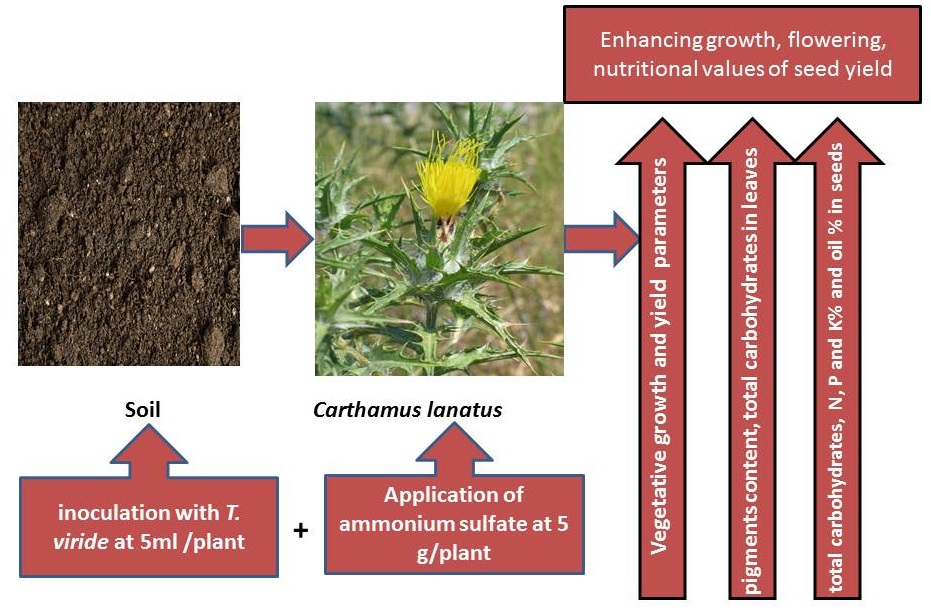Effect of different nitrogen forms and bio-treatments on the growth and seed yield of downy safflower (Carthamus lanatus)

Published 2023-01-26
Keywords
- Arbuscular mycorrhiza fungi,
- Downy safflower,
- nitrogen fertilization,
- Trichoderma viride,
- vermicompost
How to Cite
Copyright (c) 2023 Hossam Ahmed Ashour

This work is licensed under a Creative Commons Attribution 4.0 International License.
Abstract
A field experiment was carried out to investigate the effect of different nitrogen forms and some biotreatments (Trichoderma viride, vermicompost and arbuscular mycorrhiza fungi) alone or in combination on vegetative growth, seed yield and some chemical traits of downy safflower (Carthamus lanatus L.). Nitrogen was supplied as ammonium sulfate, ammonium nitrate and urea at the rates (5, 3 and 2 g/plant, respectively). Bio treatments included Trichoderma viride, vermicompost and arbuscular mycorrhiza fungi. The results showed that all nitrogen forms significantly increased the plant growth and yield, pigments content, and total carbohydrates in leaves and seeds, as well as N, P and K%, total phenols and oil content in seeds. All bio treatments significantly increased the tested parameters compared to control. The integration of ammonium sulfate with T. viride was the most effective treatment since determined the highest increases of the tested traits. Results showed that for enhancing downy safflower plant growth, and nutritional values of seed, the combined treatment of T. viride at 5 ml/plant and ammonium sulfate at 5 g/plant is recommended.




